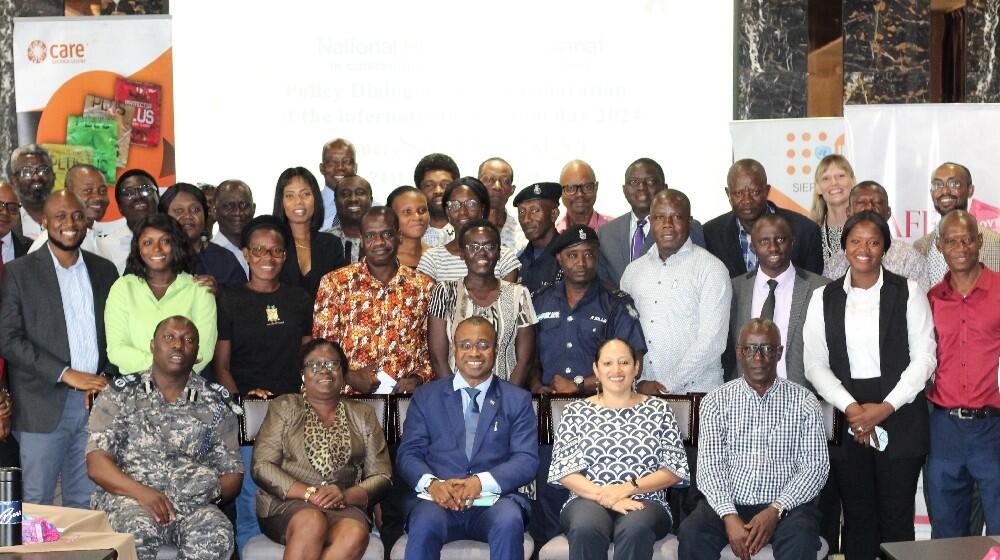FREETOWN, Sierra Leone, 22 February, 2024 - The United Nations Population Fund (UNFPA) has collaborated with the National AIDS Secretariat, the Ministry of Health, UNAIDS and other partners to commemorate this year’s International Condom Day through a series of activities held in Freetown and Bo. The day, observed annually on 13 February, is set aside to popularize condom use, promote safe and responsible sex, reduce condom-associated stigma, and heighten visibility of the dual protection that condoms provide against unintended pregnancies and sexually transmitted infections including HIV.
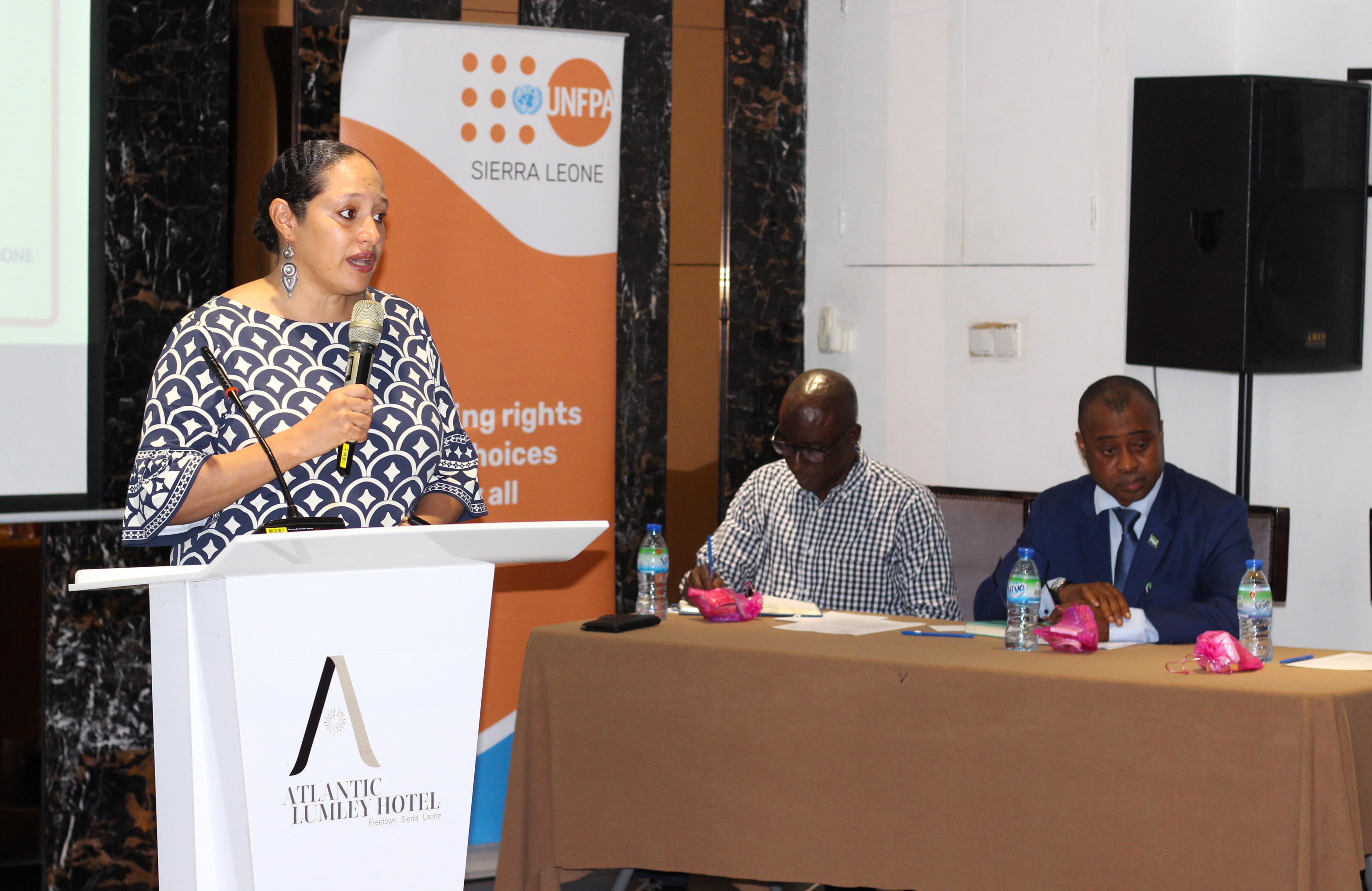
As part of the commemoration, a press conference was held in Freetown on 10th February to raise awareness of the critical role of condoms in protecting health and wellbeing, and to promote positive attitudes and behaviour. The commemoration continued in Bo with several community outreach engagements from 9-14 February including a condom fashion show, a marathon, and a "Play Safe" football match, targeted at young people, persons with disabilities, and key populations affected by HIV. The engagements also included outreach to hotels and the security and transport sectors, with over 250,000 condoms distributed.
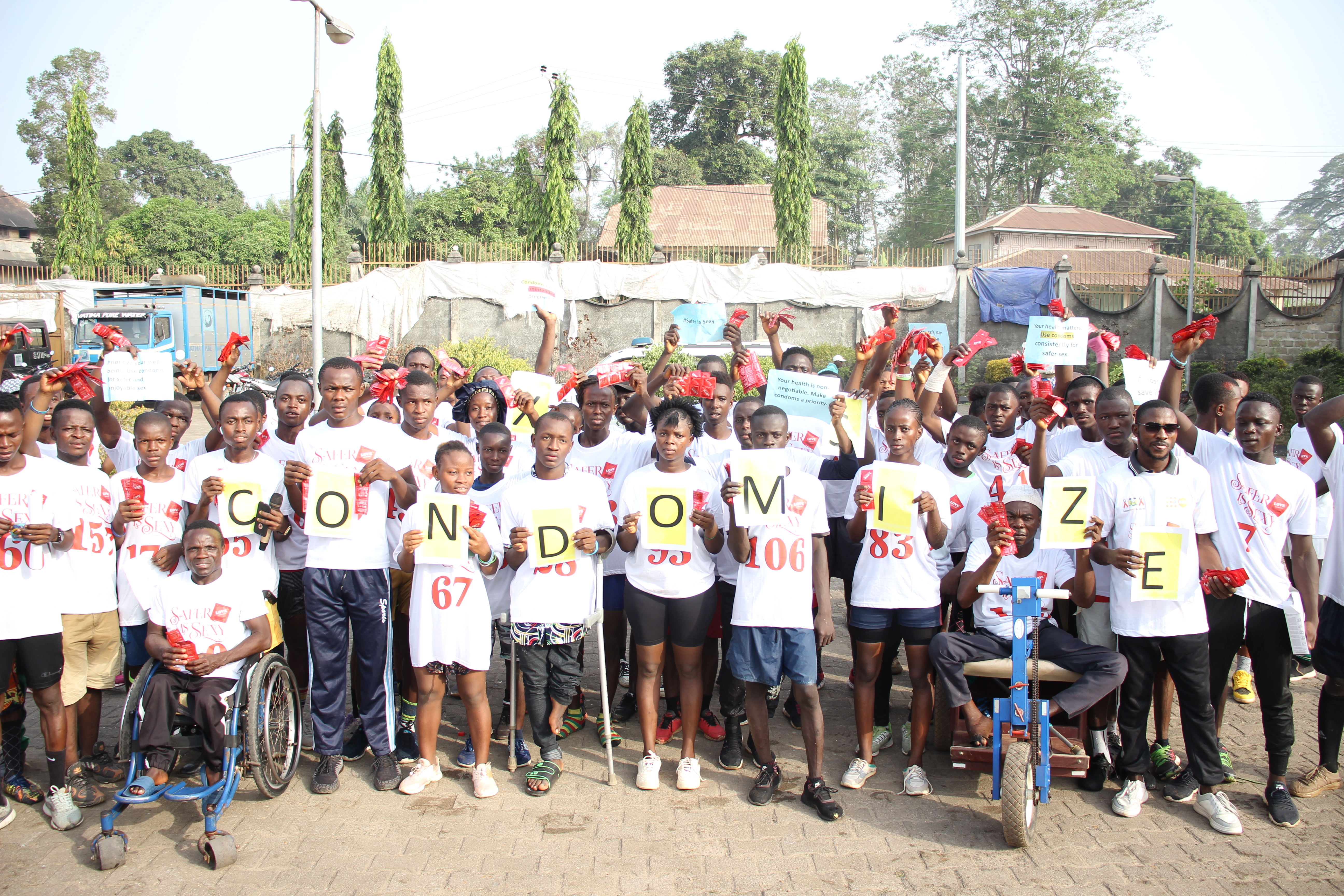
The observation concluded with a dynamic policy dialogue on condoms led by the Deputy Minister of Health, Dr. Charles Senessie, in Freetown on 21 February. In his keynote address at the dialogue, Dr. Senessie highlighted his personal commitment to protecting the health of young people and emphasized the need for holistic approaches stating, "our engagement today signifies a proactive approach to addressing public health challenges related to sexual activities. Advocating for comprehensive sexuality education, promoting condom use, and fostering open conversation on sexual issues are crucial in preventing the spread of STIs, including HIV, and unintended pregnancies."
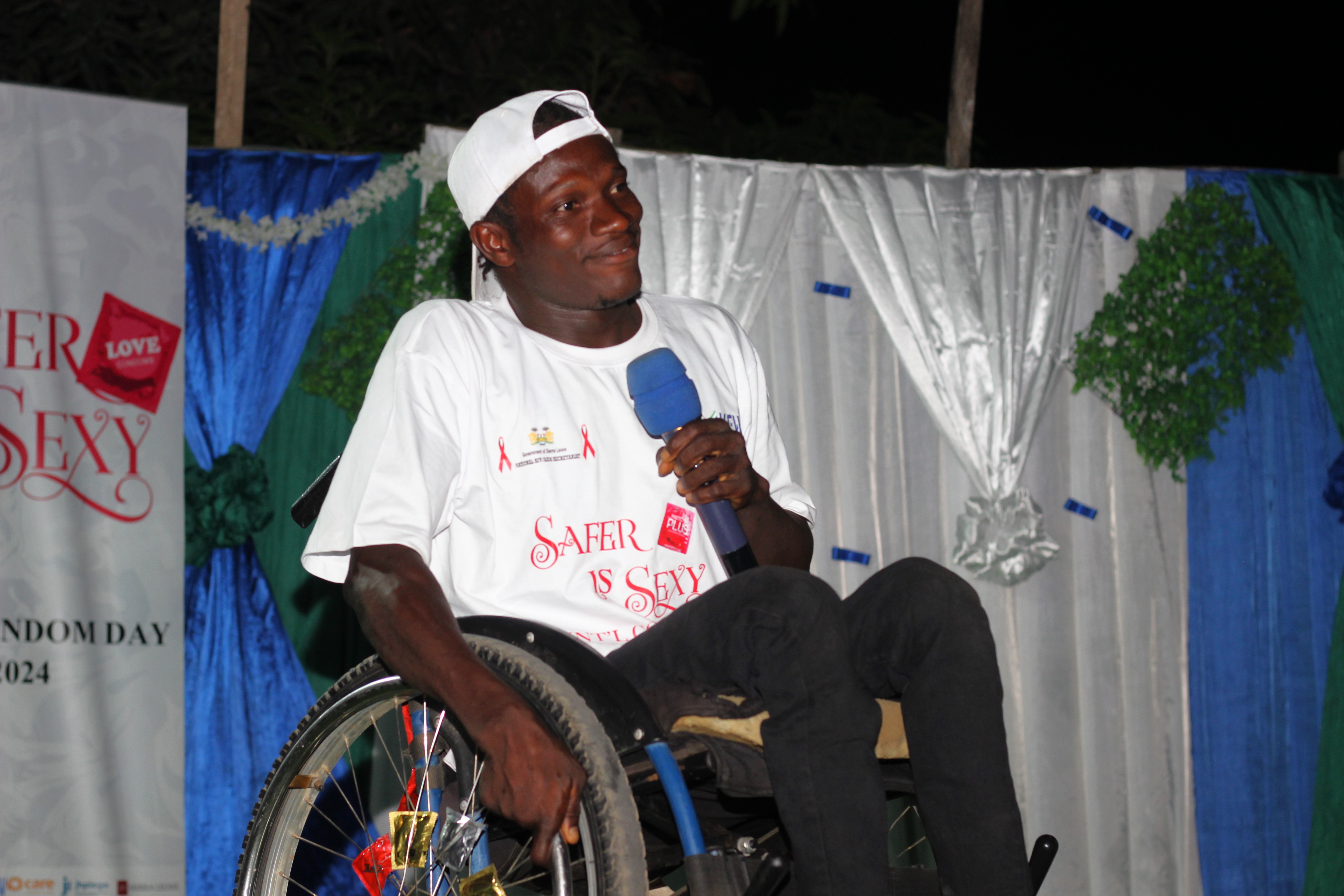
In her statement at the event, Nadia Rasheed, UNFPA’s Country Representative, stated that the policy dialogue was aimed at discussing challenges and opportunities in order to ensure that condoms are getting to the people who need them, especially young people and key populations affected by HIV. She noted that Sierra Leone faces high rates of adolescent pregnancy and sexually transmitted infections and a significant HIV epidemic, and stressed the need to “destigmatize condoms and address harmful social and gender norms that hinder access to condoms by young people, women and key populations, while also improving supply chains to ensure that condoms reach to the last mile.”

The Director-General of the National AIDS Secretariat, Mr. Abdul Rahman Sessay, in his remarks, underscored the need for multi-sectoral collaborations in prevention and control of HIV and STIs in Sierra Leone. Considering how urgent the issue is, Mr. Sessay emphasised that the “National AIDS Secretariat will be remiss in its responsibility if it fails to galvanise the efforts of the multi-sectoral partners to close the tap on new HIV infections and achieve epidemic control."
Reflecting on the dialogue, Mr. Buya Nabie Bangura, the FP2030 Youth Focal Point for Sierra Leone, called it an informative meeting that brought together development partners, young advocates for sexual and reproductive health and rights, and stakeholders across various sectors. “Ensuring the availability, affordability, acceptability and correct utilisation of condoms is paramount, particularly among sexually active adolescents and young people," Buya said.
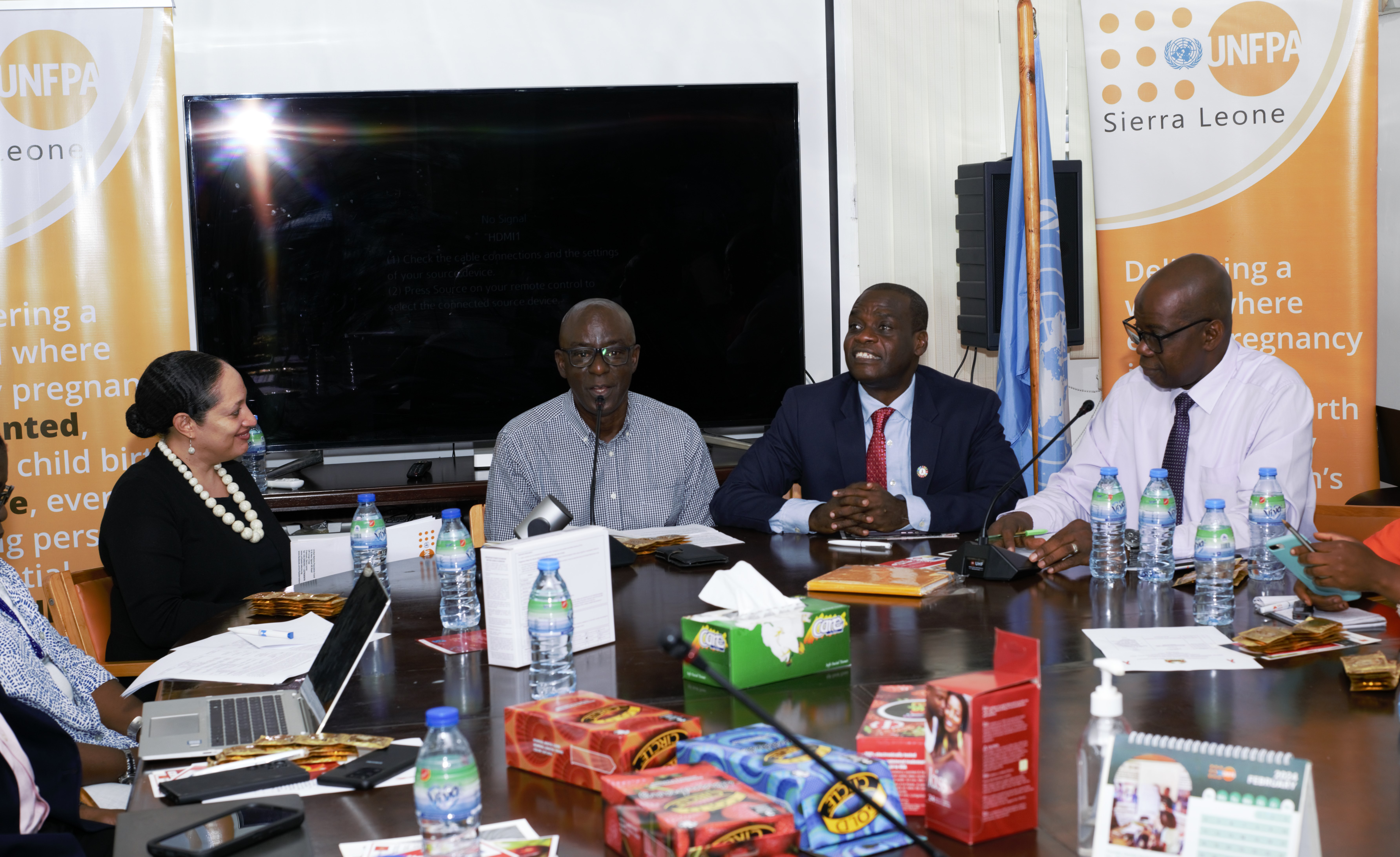
The dialogue which was moderated by the UNAIDS Country Director Isaac Ahemesah, featured representation from all partners who collaborated with the National AIDS Secretariat in marking International Condom Day, including UNFPA, UNAIDS, AIDS Healthcare Foundation, Care International, Plan Parenthood Association Sierra Leone, DKT International, the Network of People Living with HIV, Jhpiego and the Society for Family Health.

